|
Welcome Hannah! Thanks for taking some time to chat about writing. First, a few quick-fire questions: Tea or coffee? Oceans or Mountains? And if you could choose any forest creature to have as a tame pet then which would it be? Hey Joshua, thanks so much for having me. Coffee! Mountains! Preferably coffee on top of mountains. As to taming forest creatures, after much deliberation I’ve got to say… a moose. Majestic, unorthodox, and unexpectedly deadly! "...after much deliberation I’ve got to say… a moose. Majestic, unorthodox, and unexpectedly deadly!" You and I are both Canadian authors, a bit of a rarity on the global writing scene. How did being a Canadian influence or impact your path toward publication? Do you have any bits of wisdom to share with unpublished Canadian writers who are currently querying? First of all, I’m so glad we connected! Because you’re totally right, being a Canadian author is a bit of a rarity. That’s likely the biggest impact being Canadian has had on my journey; I had to go it alone for a while before I found friends online who wrote similar things. That sounds a bit sad though. On the flip side, I love how cozy the Canadian author world is! I’d encourage Canadian writers to get established in the online writing communities on Instagram and Twitter. It’s difficult to establish relationships with other writers in real life in a land of big distances and small towns, but they’re crucial! Fantasy, Historical Fiction, and Science Fiction are genres that are very distinct in my mind but are often grouped together by readers and reviewers. As a writer of all three, what key elements make these genres unique for you? Would you categorize them separately or as three strands of the same branch of fiction? I think I have to put myself somewhere in between. They’re separate, as in fantasy is magical and stretches beyond the confines of our daily experiences, sci-fi leans heavily on tech and is probably in space or the future, and historical fiction is set within the confines of the past. But the genres certainly harken to one another, at least in the way that I write and interact with them! So much of fantasy is rooted in history, in the cultures and customs and impressions of former days. So much of sci-fi requires imagining the fantastical, things beyond the world in which we now inhabit. And I, for one, very much appreciate a historical fiction with subtle elements of the mysterious and glimpses of a world which, again, is beyond my own daily existence. The setting of your upcoming debut, Hall of Smoke, is inspired by the Canadian wilderness and the ever-scenic European Alps. I love this common connection in that my trilogy is set in a wilderness blended from my time spent hiking the Canadian Rockies and memorable trip to the fjords of Norway. How did you handle blending the real and the mythic elements of nature in your trilogy? What is your approach to the natural environment while world-building and how did this come through in Hall of Smoke? I love that you’ve blended the Rockies with Norway! When I look back at writing Hall of Smoke, I made very few conscious choices about the setting of the book. I’m very much a discovery writer, and I’ll admit that I do little to no worldbuilding ahead of time. Almost every aspect of the HOS world emerged in scene as I wrote and looked through the character’s eyes, though occasionally I chose to reference my own experiences and harvest them for senses, and that’s where the distinct flavours of my childhood in the bush and my time in the Alps started to come forward. I wrote what felt natural, a place I wanted to experience, and it came together as a new world! "Almost every aspect of the HOS world emerged in scene as I wrote and looked through the character’s eyes..." Though Viking culture is often depicted as very masculine and patriarchal, I love to remind people that in the Norse myths only half of the warriors that die in battle go to Odin’s feasting hall of Valhalla - Freya demands and receives the other half as she gathers her own forces for Ragnarok in her hall of Sessrumnir. As the author of a Norse-inspired fantasy with a female protagonist, how did you navigate the often-troubled history of Norse representation in fiction and are there any misconceptions about Viking culture that you’re hoping to challenge in Hall of Smoke? Since Hall of Smoke is more on the inspired side of Viking-inspired side, I can’t say that I directly set out to challenge any misconceptions. But I do love Norse mythology for the complexity and prominence of female figures, and I was weary of Viking books and series with primarily male protagonists, stereo-typically “male” priorities and content. I enjoy those stories too, but I wanted something more balanced. And I wanted a female lead with all the skill, dignity, and complexity of the women in my life, and the women I see between the lines of the history books. "I wanted a female lead with all the skill, dignity, and complexity of the women in my life, and the women I see between the lines of the history books." Some of my favorite Viking-themed fantasy storylines come from the world of video games. I know that you and I both share a love of Skyrim in particular! What role do you see video games playing in the arena of fantasy and science fiction story-telling, especially as a writer of fantasy in a more traditional sense? I do love Skyrim! I think video games are a fascinating and undervalued arm of the SFF community. They combine so many artistic avenues into one form - visual art, music and sound, cinematics, general storytelling, etc - and I think game developers do not get half the respect they deserve. Personally, I find gaming frees up my mind, giving me a chance to break out of the world I’m currently working in and immerse myself completely in something new. They’re both a tool for me and an ultra-addicting hobby! Right now you have an untitled sequel to Hall of Smoke on the docket, as well as an adult space opera and an adult romantic fantasy. Can you give us any sneak previews or hints about these tales or when they might be forthcoming in print? Unfortunately, I can’t say much! But the sequel to Hall of Smoke is slated for release early 2022. It’s a stand-alone set in the same world, roughly a decade after the events of book one, and will feature some familiar faces. The romantic fantasy is a bit of a passion project, something I’m keeping relatively quiet to free myself up for creativity. The space opera - I have a feeling this one will be big, in the sense of it may take me a few years to get it right. But I’m so excited to explore that world more! I also have a Gaslamp trilogy floating out in the ether that I’d love to see in print in the next few years. Last, but certainly not least, where can readers purchase Hall of Smoke and keep track of your upcoming publications? Hall of Smoke is available wherever books are sold, in paperback, ebook and audiobook formats. All the latest news is available on my main platform, Instagram, as well as my website. Thanks so much for this opportunity, Joshua!
0 Comments
Besides writing your novel you also manage to write for online publications such as the Vancouver Sun, The Globe and Mail, USAToday, and Time. What type of schedule or routine helps you maintain that level of productivity? Since my head injury I have less capacity to write, but I still do a lot of that writing, partly for income because I live in Vancouver which is expensive. But I also write because it's something I enjoy. So for me as a disabled person, for now it’s about pacing myself and being really open. The interesting thing is that I struggle with using screens so I can’t always write. Then I have to get creative. I write with my eyes closed. Sometimes I write a draft on paper and then transfer it over. And sometimes I just write on the weekends. I like to write in the morning on the weekends. It’s the first thing I do. Right now I am doing a lot of editing for my creative work rather than writing so I have to balance it all. "Then I have to get creative. I write with my eyes closed. Sometimes I write a draft on paper and then transfer it over. And sometimes I just write on the weekends." You and I have a common connection in Rob McLennan, a Canadian poet who runs an amazing blog promoting Canadian writers. With your background in CanLit, where do you think Canadian fiction is going and what would it take to boost the signal for Canadian writing around the world? I think in Canadian fiction a lot of marginalized writers are getting more of a voice and receiving more recognition. I absolutely love seeing that. In fact, I think that some of the best writing is coming from writers who have traditionally struggled to get published. I also think there is a lot of fiction that is becoming a bit more experimental as writers play with form. As a novelist and a non-fiction writer who is interested in form and experimental writing I think that to get more exposure internationally Canada needs to continue to promote a diverse array of voices. The freshness of those voices and the level of the work being done really speaks for itself. "The freshness of those voices and the level of the work being done really speaks for itself." Much of your work has centered around advocacy for the community of writers living with disabilities. Who is one writer in particular from this community that inspires you and that you believe should be getting more recognition for their work?
I’ve noticed a common theme in your columns and that is plenty of praise for the great English writer Virginia Woolf. What is it about her life and craft inspires you in your writing? As I said earlier, when I was about sixteen I picked up the book To the Lighthouse. What was interesting about this for me was that I had to read the first sentence twice because it was very wrong. Virginia Woolf tried to rethink what a sentence could be as a very literal and deliberate act. What she brought to everything that she did in fiction was a deep engagement with what fiction could be, what it should be, and how she wanted it to be right down to the level of a sentence. She put a lot of thought into what a sentence could look like, how it could be different, why it should be different, and what it could potentially do. "What she brought to everything that she did in fiction was a deep engagement with what fiction could be,
Your novel Unfinished tells the story of V.E. Clark, a young author who revelled in a decade of literary success before disappearing into small-town Connecticut. When it is revealed that she is dying of cancer her publishers send a biographer to dig into the shroud of questions that cloud her existence and so her tale unravels. With ‘all things unfinished in life’ as a central theme in the book, what has been the greatest challenge for you as a writer in crafting the story? When I try to talk about writing this book it’s hard because it has been written through the darkest part of my life. As I wrote this one a loved one was dealing with thoughts of suicide which was the most painful path I’ve walked in my life as it just broke my heart to see him in so much pain. My whole life became centered around trying to help him. At the same time, some of the themes in the book came from the fear and the belief that we often try to accomplish things that we are unable to finish. It was a theme that was very alive for me in that moment because I wanted to write and I wasn’t really able to write a lot. It was coming in drips and drops which was really, really hard. "When I try to talk about writing this book it’s hard because it has been written through the darkest part of my life." After he recovered, I had a very serious head injury and it was through this period that I was trying to edit the book. As I was getting close to finishing it, I experienced extreme amounts of ableist abuse from various parts of my life and people I loved dearly. And so now, if this novel ever gets finished it will be an incredibly emotional moment in my life because it is a symbol of all of my deepest struggles. Hopefully it will also be enlightened by those experiences as well. We all go through difficult times and this is a story about a person dying as they worry that they won’t be able to finish what they started. Though my own personal literary adventures take me into medieval Icelandic texts, I am intrigued by your interest in experimental writing. Who are a few authors in this field who inspire you and do you have a particular recommendation for a book to start with for those interested in learning more? It’s really interesting because when people talk about experimental writing they have a very specific view of what that looks like. Often it’s this image of fiction that is very difficult and drab. In fact there have been a number of different debates in literary culture about whether it's too complicated or whether it's bad for fiction. Very famously, Jonathan Franzen wrote a piece called Mr. Difficult which sparked a debate within the community of people who support experimental writing.
Where can readers keep track of your latest writings and stay up to date on the publication of Unfinished?
|
AuthorJoshua Gillingham is an author, editor, and game designer from Vancouver Island, Canada. Archives
April 2022
Categories
All
|

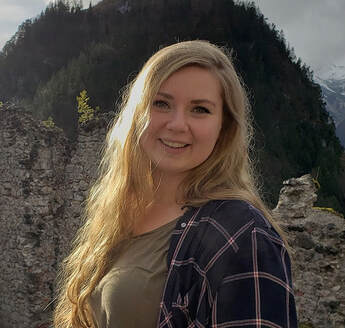
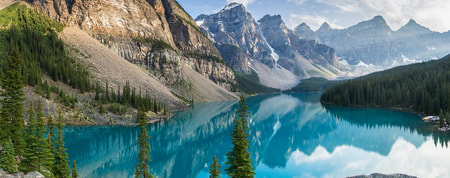
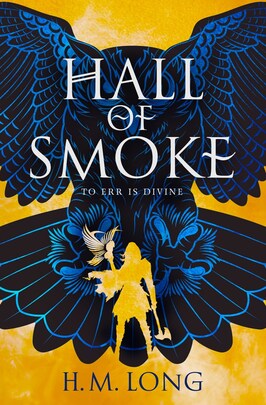
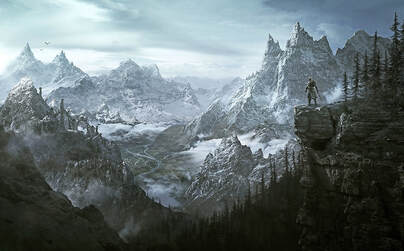
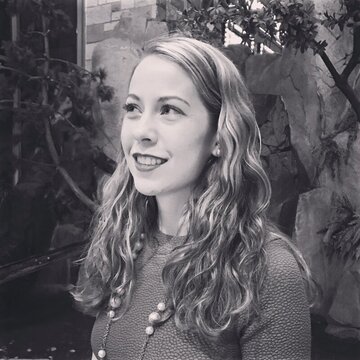
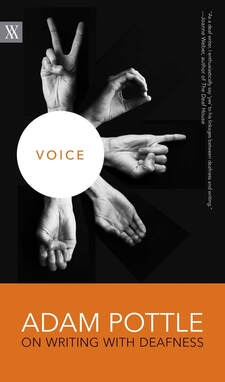
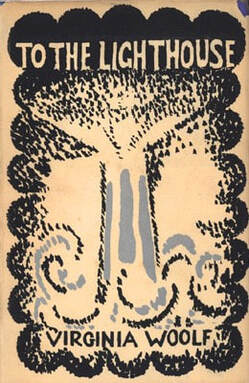
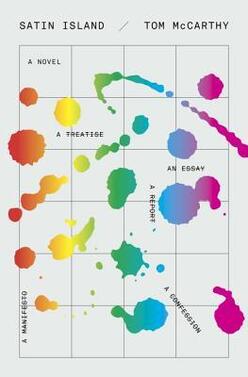
 RSS Feed
RSS Feed
